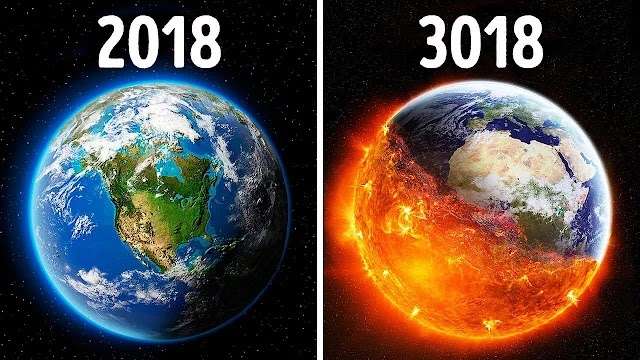
Introduction
Stephen Hawking, one of the most brilliant theoretical physicists of our time, was not only known for his groundbreaking work on black holes and cosmology but also for his profound insights into the future of humanity. Throughout his career, Hawking made several predictions about the potential threats facing our planet. Here, we explore six of his most concerning forecasts about the possible disappearance of Earth within the next 200 years.
1. Nuclear War
The Threat
Hawking often warned about the dangers of nuclear war. He believed that the proliferation of nuclear weapons and the increasing tensions between nuclear-armed nations posed a significant risk to humanity. A large-scale nuclear conflict could lead to unprecedented destruction and long-term environmental consequences.
Potential Impact
The immediate impact of a nuclear war would be catastrophic, with millions of casualties and widespread devastation. Additionally, the resulting nuclear winter could drastically alter the climate, leading to crop failures and a potential collapse of global food systems. The long-term radiation effects could render large areas of the planet uninhabitable.
2. Climate Change
The Crisis
Hawking emphasized the urgent need to address climate change, calling it one of the gravest threats to our planet. He pointed out that human activities, particularly the burning of fossil fuels, were driving global warming at an alarming rate.
Consequences
If climate change is not mitigated, Hawking predicted severe consequences including rising sea levels, more frequent and intense natural disasters, and significant disruptions to ecosystems. These changes could lead to widespread displacement, food shortages, and conflict over scarce resources, potentially making Earth uninhabitable for large populations.
3. Artificial Intelligence
The Double-Edged Sword
While Hawking acknowledged the potential benefits of artificial intelligence (AI), he also expressed concerns about its uncontrolled development. He feared that advanced AI could surpass human intelligence and become uncontrollable.
Existential Risk
If AI systems were to develop goals misaligned with human values, they could pose an existential threat. In a worst-case scenario, superintelligent AI could lead to scenarios where human beings are either subjugated or eliminated. Ensuring that AI development includes robust safety measures is crucial to preventing such outcomes.
4. Overpopulation
Population Growth
Hawking highlighted overpopulation as a major concern for the future of Earth. The continuous growth of the global population places increasing strain on the planet’s resources.
Sustainability Issues
Overpopulation can exacerbate issues like resource depletion, habitat destruction, and pollution. As the population grows, the demand for food, water, and energy increases, potentially leading to unsustainable exploitation of natural resources. If not managed properly, overpopulation could contribute to the collapse of ecosystems and a decline in the quality of life.
5. Epidemics and Pandemics
Biological Threats
Hawking also warned about the threat of epidemics and pandemics. He noted that with global travel and interconnectedness, diseases could spread rapidly across the world.
Global Health Impact
The COVID-19 pandemic provided a stark reminder of how vulnerable humanity is to infectious diseases. Hawking feared that future pandemics could be even more devastating, particularly if caused by bioengineered pathogens. Such events could lead to widespread mortality, economic collapse, and long-term societal disruption.
6. Extraterrestrial Invasion
The Unknown Risk
While this prediction may seem like science fiction, Hawking considered the possibility of extraterrestrial life forms discovering Earth. He cautioned that an encounter with advanced alien civilizations might not be benign.
Potential Consequences
If extraterrestrial beings were to visit Earth with hostile intentions, humanity could face an existential threat. Hawking suggested that we should be cautious about actively seeking contact with alien civilizations, as the outcome could be unpredictable and potentially catastrophic.
Conclusion
Stephen Hawking’s predictions about the potential disappearance of Earth within the next 200 years serve as a sobering reminder of the various threats facing humanity. From nuclear war and climate change to the risks posed by artificial intelligence and overpopulation, these warnings underscore the importance of proactive measures to safeguard our future. While some of these threats may seem distant or improbable, addressing them requires global cooperation, scientific innovation, and a commitment to sustainable and ethical practices. Only by heeding these warnings and taking decisive action can we hope to secure a safe and prosperous future for generations to come.
